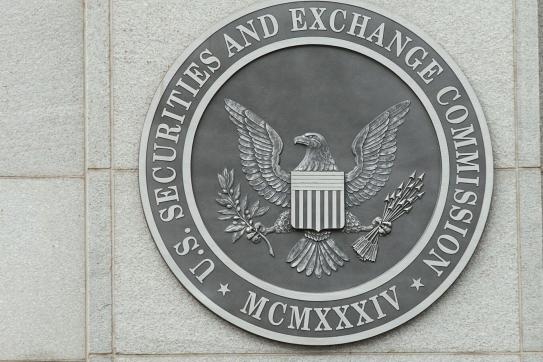There is greater potential for curbing the risk of catastrophic climate change if businesses start accurately disclosing their climate emissions and risks. Just 36 percent of North American companies have announced plans to reduce global emissions, and any effort to rein in carbon must include U.S.-based companies.
That’s why the Securities and Exchange Commission should be commended for their decision to issue ambitious new rules on climate disclosures. The proposed regulations would require companies to explain what they’re doing (or not doing) to reduce their climate footprint, and it’s a crucial step forward.
Under the proposal, companies must finally disclose their impact on the climate in three key ways:
- The environmental impact of business activity.
- The direct impact of their operations on climate change.
- The carbon footprint of their suppliers, their business travel, and their company’s infrastructure.
Yet even though the ink has barely dried on these newly released SEC climate rules, it’s important to recognize that the 510 pages of regulations may never be enacted. There is no consensus in Congress to act on the climate problem, Republican lawmakers have already urged the SEC to withdraw their proposal, and a more conservative U.S. Supreme Court could view the new rules as an overreach. And, state attorneys are also vowing to challenge the SEC’s proposal.
So if these rules are dead on arrival, where are the areas of promise? There are a few.
The SEC proposal will likely motivate corporations to improve voluntary disclosure of their climate risks, and may increase investment in technologies that reduce emissions. New attention on disclosure could also lead to better climate expertise in the C-suite and more scrutiny on greenwashing.
Possible Promising Areas
Here’s what could happen next.
First, this momentum toward climate disclosure might encourage businesses to change strategy, taking steps to move capital out of fossil fuels and toward renewable technologies and other solutions to climate change.
For example, Koch Strategic Partners, a subsidiary of the energy-based conglomerate Koch Industries that has long opposed environmental regulation, has emerged as one of the biggest financial backers of the battery industry. Koch and Ford are both backing Solid Power Inc., which is working on making better battery technology.
Second, it’s likely that the need for climate leadership will lead to businesses adding expertise. While companies like Apple, Facebook, Google, and Microsoft already report extensive emissions data, many companies lack the same level of expertise.
The Big Four accounting firms along with other professional-service firms have already started to invest in climate expertise. Ernst & Young announced that it will spend $10 billion over the next three years on audit quality, sustainability, and technology, and KPMG is planning to spend more than $1.5 billion over the next three years on climate-change-related initiatives and training on ESG issues.
Audit and professional services firms are likely to generate significant revenue from clients seeking to measure and manage greenhouse gas emissions. Even with professional support, many companies will need to make significant strides to develop in-house expertise to meet new climate regulations even if the SEC proposal is significantly amended.
Third, increased climate literacy will allow for more scrutiny of green claims, meaning capital will be more likely to flow to truly sustainable projects. As tougher climate policies are proposed and implemented, the days of corporate greenwashing—and investors being misled—could finally come to an end.
That could lead to more money flowing to projects like Apple’s Green bonds which raise capital for projects with environmental benefits, and recently funded over a gigawatt of clean power globally, equivalent to removing 200,000 cars from the road. More companies are likely to follow Apple in investing in truly sustainable projects with more regulation around climate reporting.
Proposal Shows a Changing Landscape for Enforcement
With the release of the proposed rules, the SEC has published a template for regulatory action. Some states have been eager to push the federal government for more stringent climate regulations, and it’s possible that an enterprising governor, state legislature, or attorney general could seek to implement some of the SEC’s playbook. California has been aggressive in pushing for stronger environmental standards for companies for years, most notably setting higher auto pollution and mileage rules than federal standards—setting the pace for the rest of the country.
Even if the SEC rules fail to get enacted, it is likely the SEC will increase enforcement of existing climate disclosures. This may have the biggest impact in terms of stopping green washers, especially among asset managers. That could deliver a boost to the essential—but currently unregulated—carbon offset market by driving out projects lacking environmental integrity.
The SEC’s proposed climate reporting regulations are a significant moment for the business community, regardless of where the regulations go next. The landscape for business is rapidly changing. The days of ignoring climate risk are numbered as the global community acts to address the threat climate poses to our planet, communities, and businesses.
This article was first published on the Bloomberg Law website.
About the Researchers
Shivaram Rajgopal
Roy Bernard Kester and T.W. Byrnes Professor of Accounting and Auditing, Accounting Division
Bruce M. Usher
